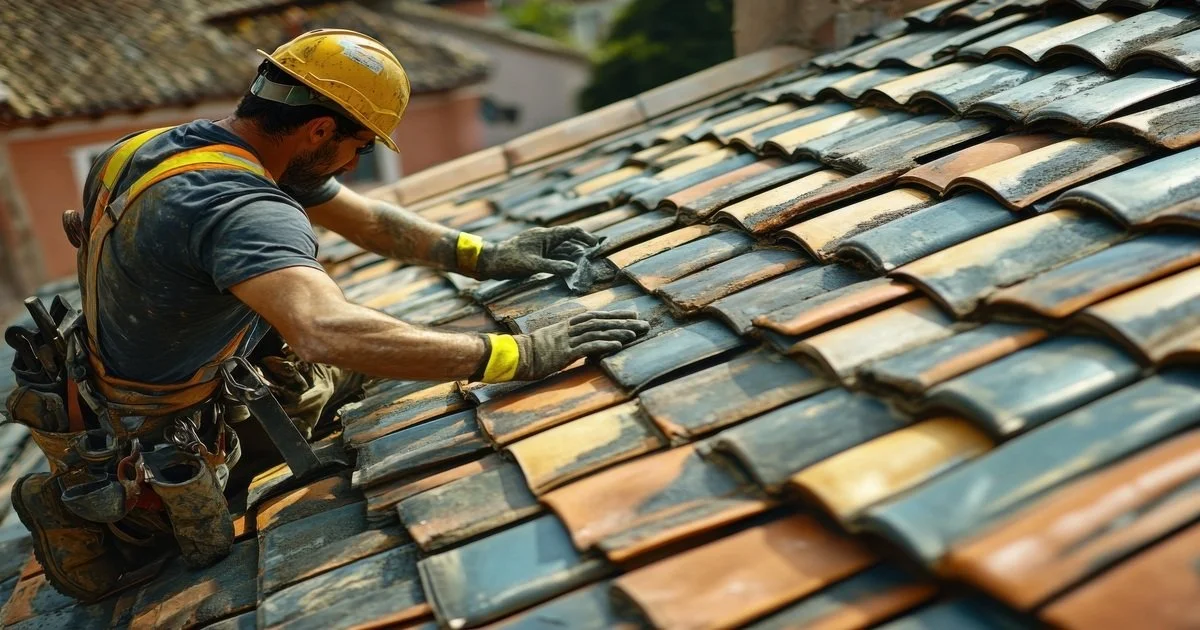Professional Roofing Repair & Replacement Services
A roof is one of the most critical structural systems in any residential or commercial property. It protects the interior from weather damage, contributes to energy efficiency, and plays a major role in curb appeal. When roofing issues arise, addressing them quickly and properly becomes essential—not only to prevent further deterioration, but to protect the long-term value of the property itself. Roofing repair and replacement services are foundational components of strong real estate strategy, whether you're preparing to list a home, maintaining an investment property, or ensuring a newly purchased building is safe and code-compliant.
This guide explores the key elements of roofing repair and replacement, explains how these services impact real estate outcomes, and outlines what property owners should expect when planning roofing work.
Understanding the Importance of Roofing Health
A well-maintained roof is far more than a cosmetic feature; it is a key structural element that determines a property’s durability and performance. Over time, exposure to Texas weather conditions—intense heat, humidity, heavy rain, and occasional storms—can weaken roofing materials and create vulnerabilities. Even small issues like loose shingles or minor leaks can evolve into significant structural problems if not addressed in time.
For buyers, sellers, or investors, the condition of the roof is often one of the first items uncovered during inspections. A failing roof can affect appraisal results, hinder financing approval, and prompt buyer hesitations. Conversely, a solid, updated roof enhances confidence, improves marketability, and can contribute to favorable negotiation outcomes.
Understanding how roofing systems age, the signs of deterioration, and the benefits of timely repairs allows property owners to make informed decisions that protect both safety and financial value.
Common Roofing Issues and Warning Signs
Roofing problems often develop gradually, making it easy for property owners to overlook early indicators. Some of the most common issues include:
Missing, curling, or cracked shingles
Water stains on ceilings or walls
Granule loss on asphalt shingles
Sagging roof sections
Rusted or damaged flashing
Gutter blockage and improper drainage
Mold or algae growth
Increased indoor humidity or hot spots
Each of these symptoms points to underlying concerns that can escalate if ignored. Water intrusion is especially damaging; it can compromise insulation, affect electrical systems, and lead to costly interior repairs. When these warning signs appear, a timely assessment from a qualified roofing professional is essential to prevent further damage.
For real estate transactions, identifying and resolving these issues early ensures transparency and smoother negotiation processes. Whether preparing a home to hit the market or maintaining a rental portfolio, staying ahead of roofing maintenance safeguards the integrity of the investment.
Roof Repair vs. Roof Replacement: Choosing the Right Solution
One of the most important decisions property owners face is determining whether a roof needs repairs or a full replacement. While repairs can resolve isolated issues—such as patching leaks, replacing damaged shingles, or fixing flashing—there are situations where repeated fixes are not cost-effective.
A full replacement may be the better option when:
The roof has reached the end of its lifespan (typically 20–30 years for asphalt shingles)
Damage is widespread or involves structural layers
Multiple leaks appear in different locations
Storm damage impacts large sections of the roofing system
The roof is affecting a property's appraisal or insurability
Sellers want to position their home competitively in the market
Choosing the correct path requires a thorough inspection and careful evaluation of both short-term costs and long-term benefits. While replacements may involve more upfront investment, they often eliminate recurring repair costs, increase energy efficiency, and improve long-term property value.
How Roofing Work Impacts Real Estate Value
Roofing repair and replacement have a direct influence on how a property is perceived and valued. Appraisers, inspectors, and buyers all pay close attention to roofing condition because it affects both safety and future maintenance costs. A well-maintained or newly replaced roof can:
Increase a home’s market value
Improve curb appeal
Strengthen buyer confidence
Reduce likelihood of negotiated price reductions
Accelerate time on market
Enhance inspection outcomes
Qualify the property for insurance discounts
For investment properties, a strong roofing system also reduces long-term operating expenses, minimizes tenant maintenance requests, and protects interior finishes. Commercial properties benefit from improved energy performance and reduced risk of operational disruptions caused by leaks or structural issues.
Ultimately, roofing health is one of the most powerful contributors to long-term property value and market readiness.
The Roofing Repair & Replacement Process
A successful roofing project requires careful planning, professional coordination, and compliance with local building standards. The process typically involves:
Initial Inspection: A detailed assessment identifies damage, evaluates underlying structures, and determines the appropriate solution.
Material Selection: Options may include asphalt shingles, metal roofing, tile, TPO, or flat roof systems. Each has unique durability, appearance, and cost considerations.
Preparation and Protection: Proper setup ensures landscaping, exterior walls, and property features remain protected during the project.
Repair or Replacement Work: Experienced technicians execute the work with attention to safety, workmanship, and code compliance.
Final Inspection and Documentation: Upon completion, the roof is inspected again to confirm quality standards, and owners receive documentation for warranties, insurance, or future reference.
Professional oversight ensures the work is completed smoothly, safely, and in alignment with all Houston-area building regulations.
Keeping Roofing Projects Compliant With Houston Requirements
Houston has specific construction requirements related to roofing materials, installation practices, drainage systems, and permitting. Proper compliance protects the property from potential fines, insurance conflicts, or safety issues. Whether the project involves storm-related repairs, a full replacement, or energy-efficient upgrades, working with professionals who understand Houston’s regulations ensures the project meets all city guidelines.
This includes adherence to:
Local building codes
Roofing material standards
Windstorm requirements
Proper ventilation and insulation criteria
HOA or neighborhood restrictions, when applicable
Compliance not only protects the property today but also supports future resale value by ensuring all documentation is in order.
Your Trusted Resource for Roofing Solutions and Professional Partnerships
Roofing repair and replacement require expertise, reliable coordination, and a clear understanding of long-term property needs. Whether you're preparing a home for sale, safeguarding a new investment, or addressing storm-related concerns, professional guidance ensures the process is smooth and aligned with your goals. We work closely with trusted roofing specialists who deliver high-quality workmanship, transparent evaluations, and reliable support at every stage.
If you need help evaluating your roofing options or connecting with reputable professionals, reach out. We can guide you through roofing decisions and connect you with the right partners for inspections, repairs, replacements, and full project management—ensuring your property remains protected, structurally sound, and ready for the market.



